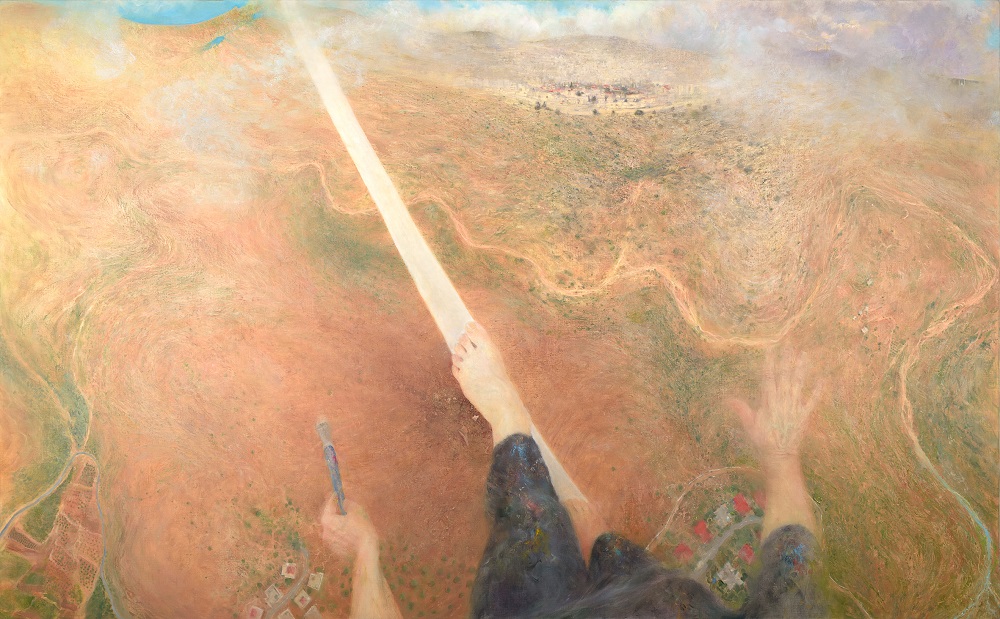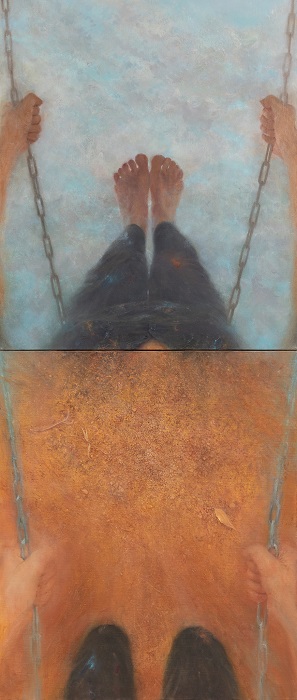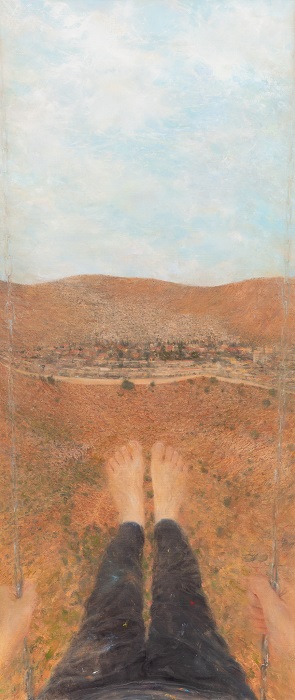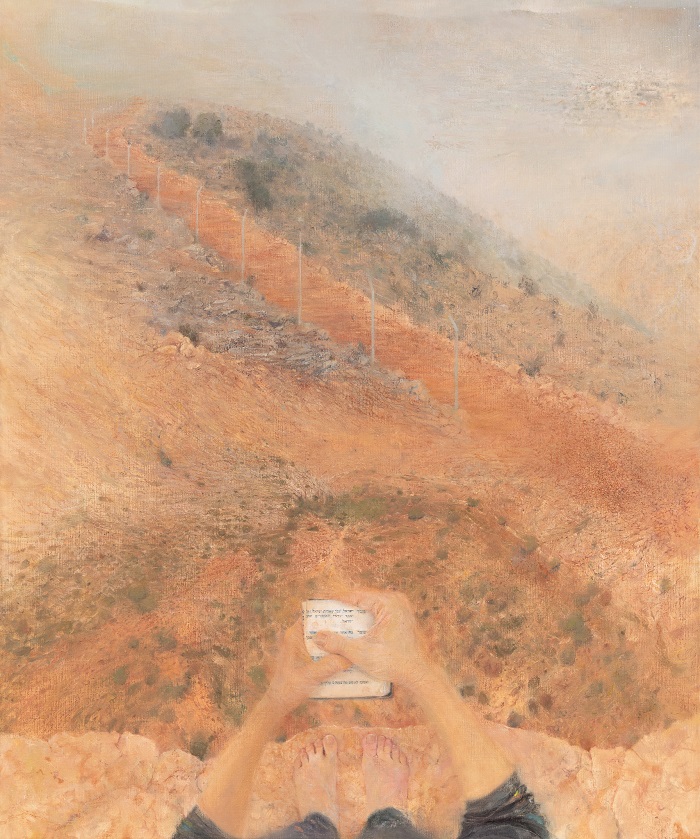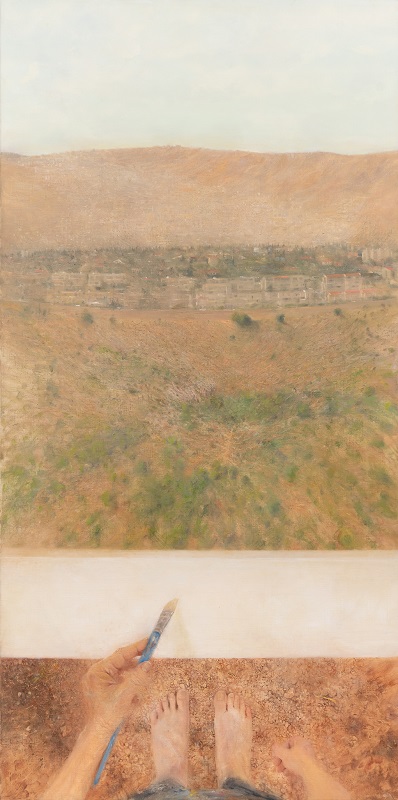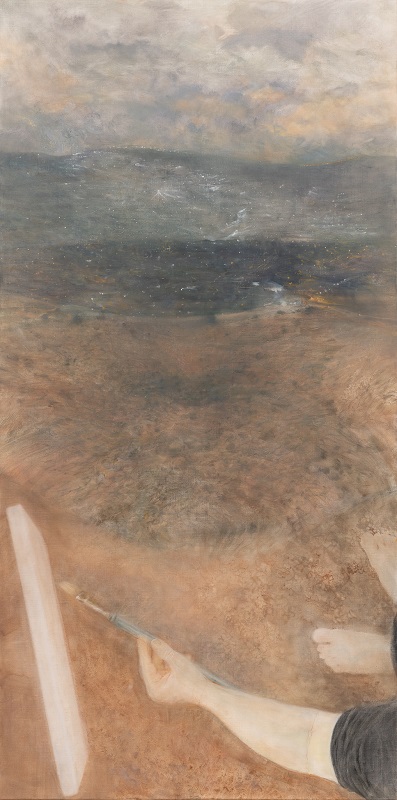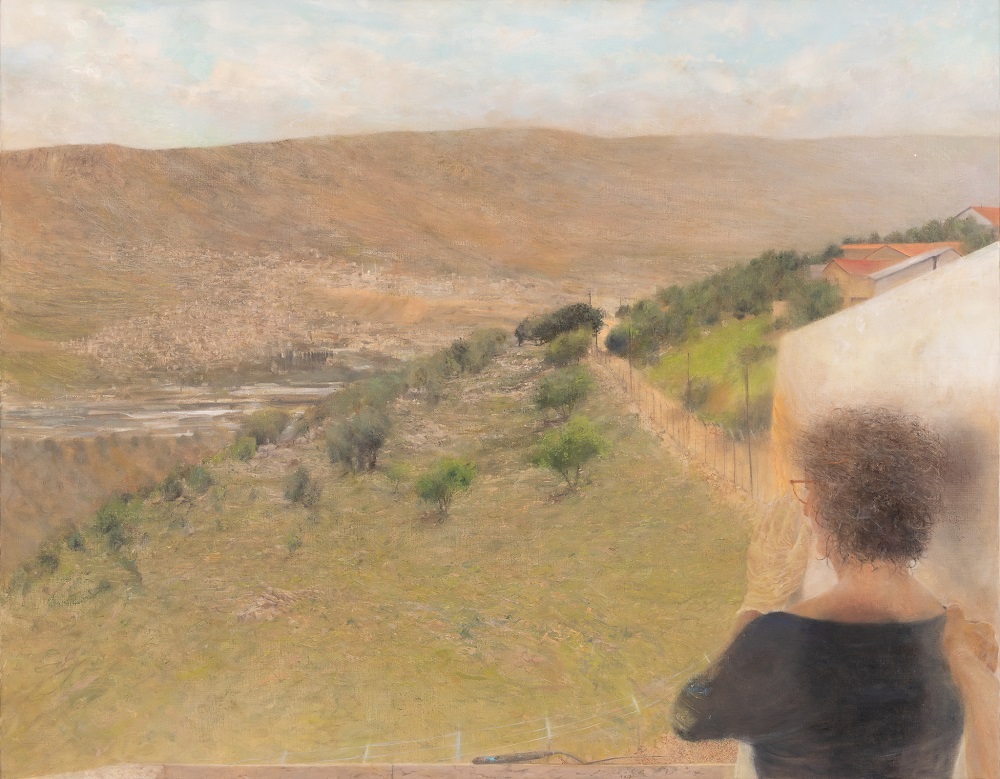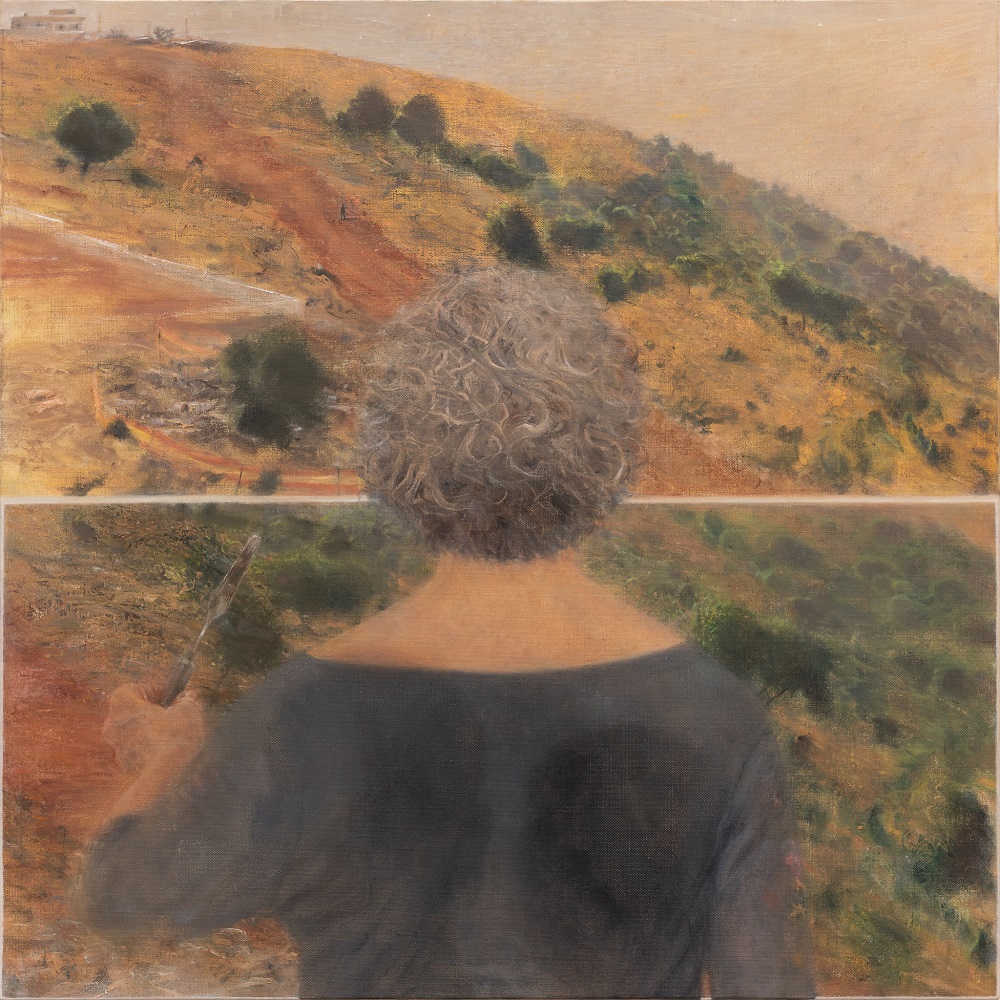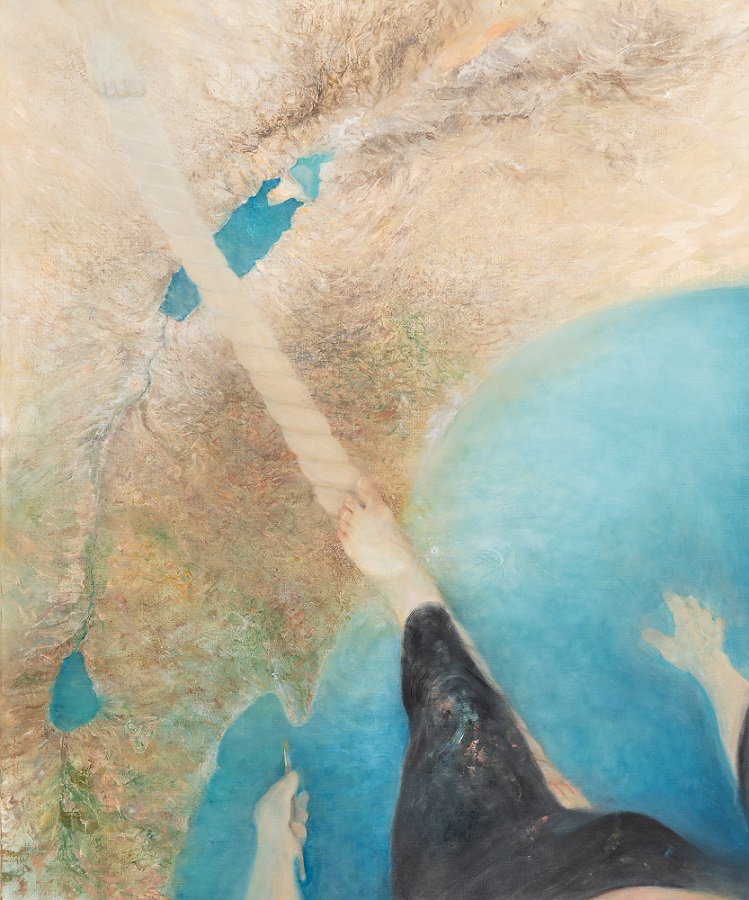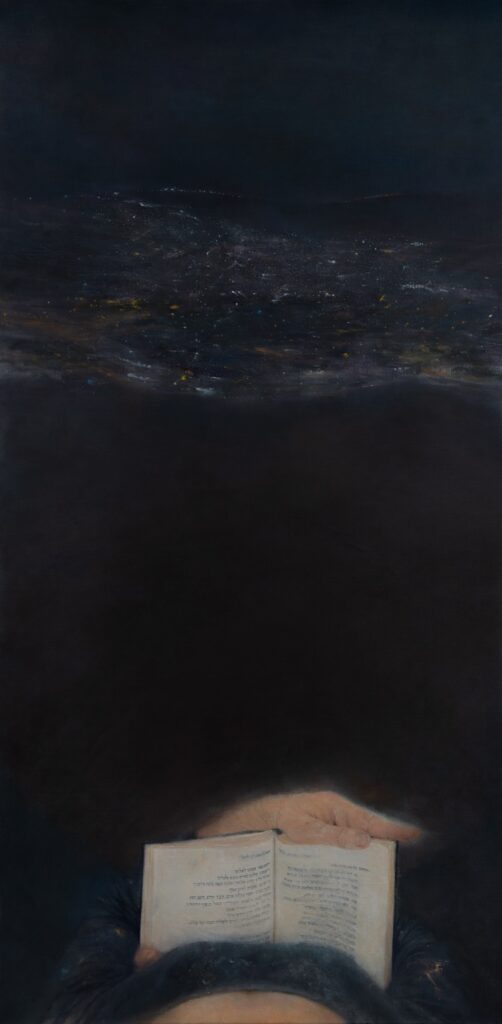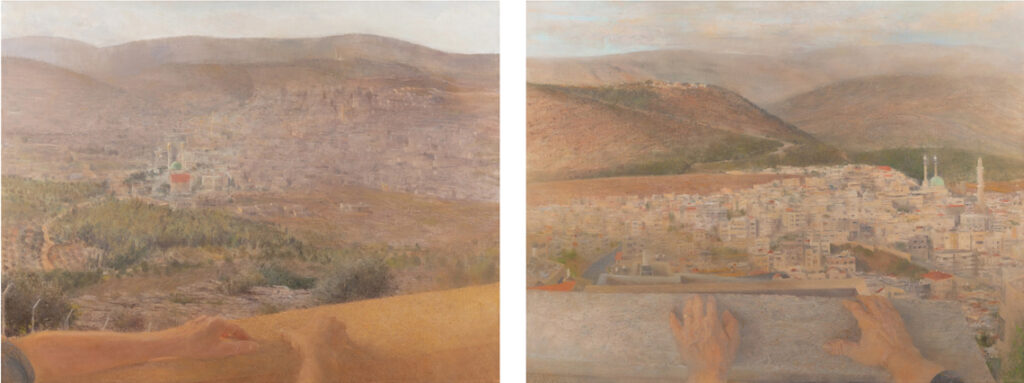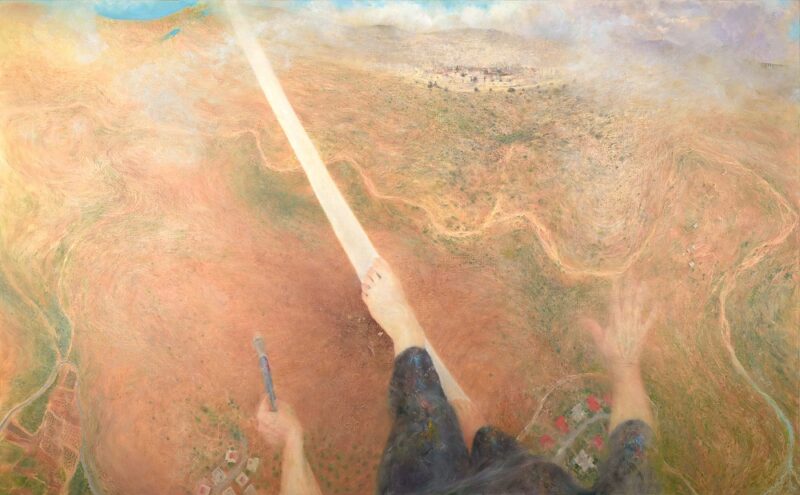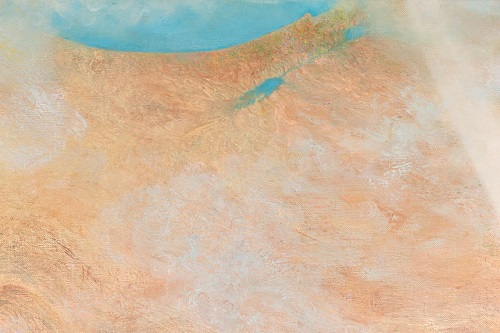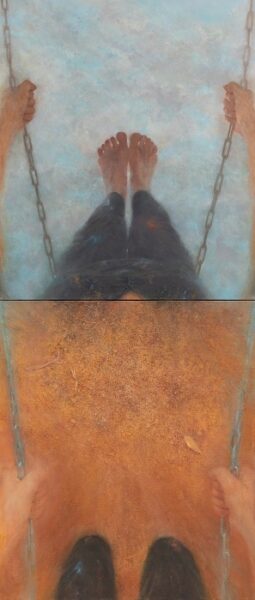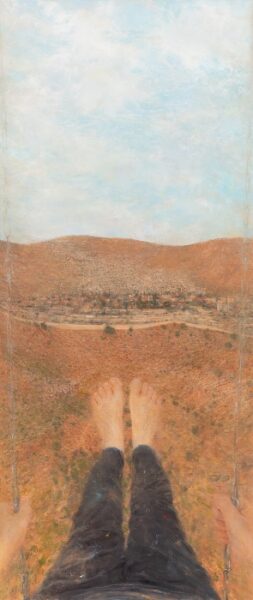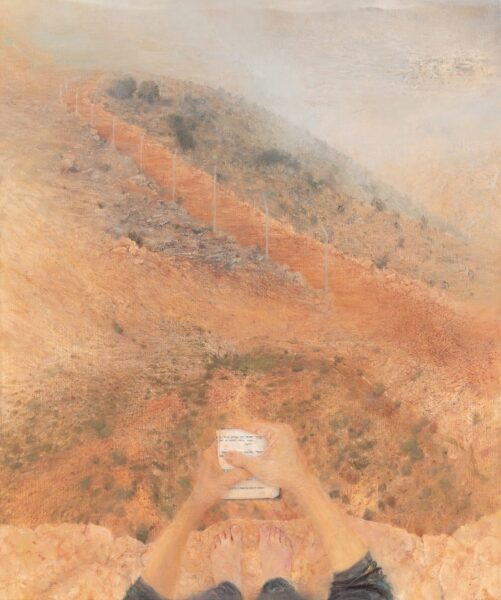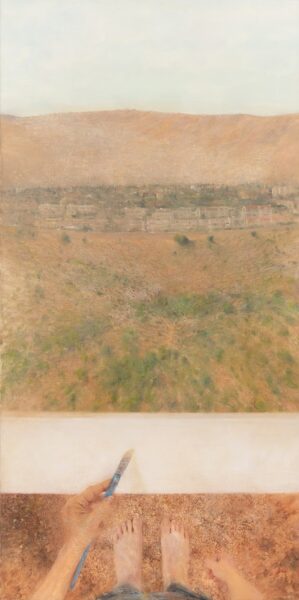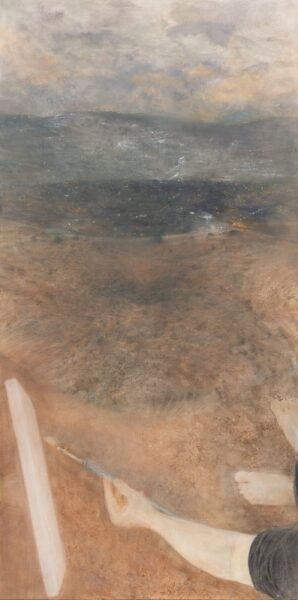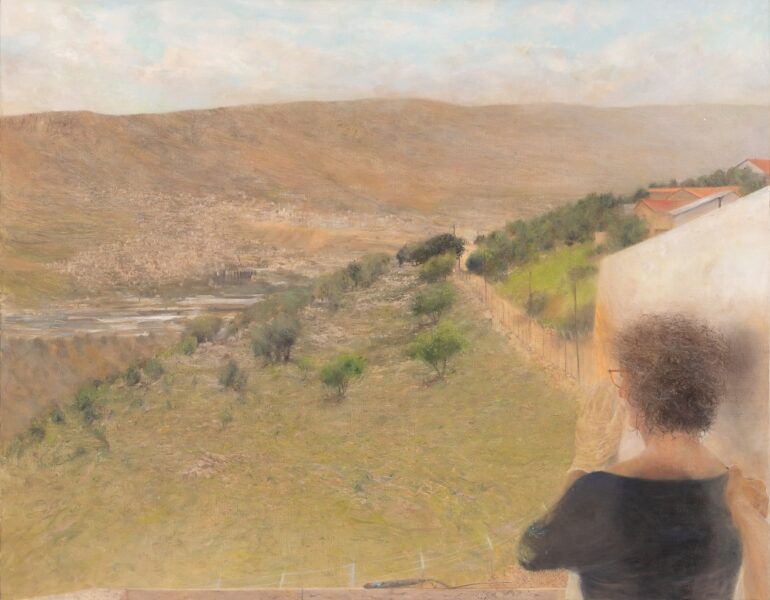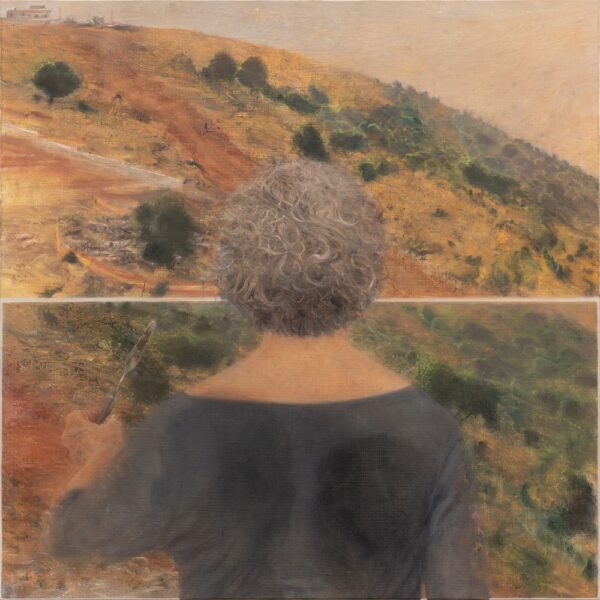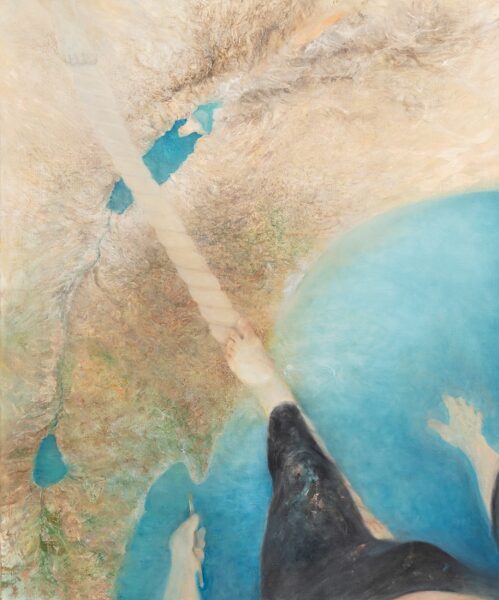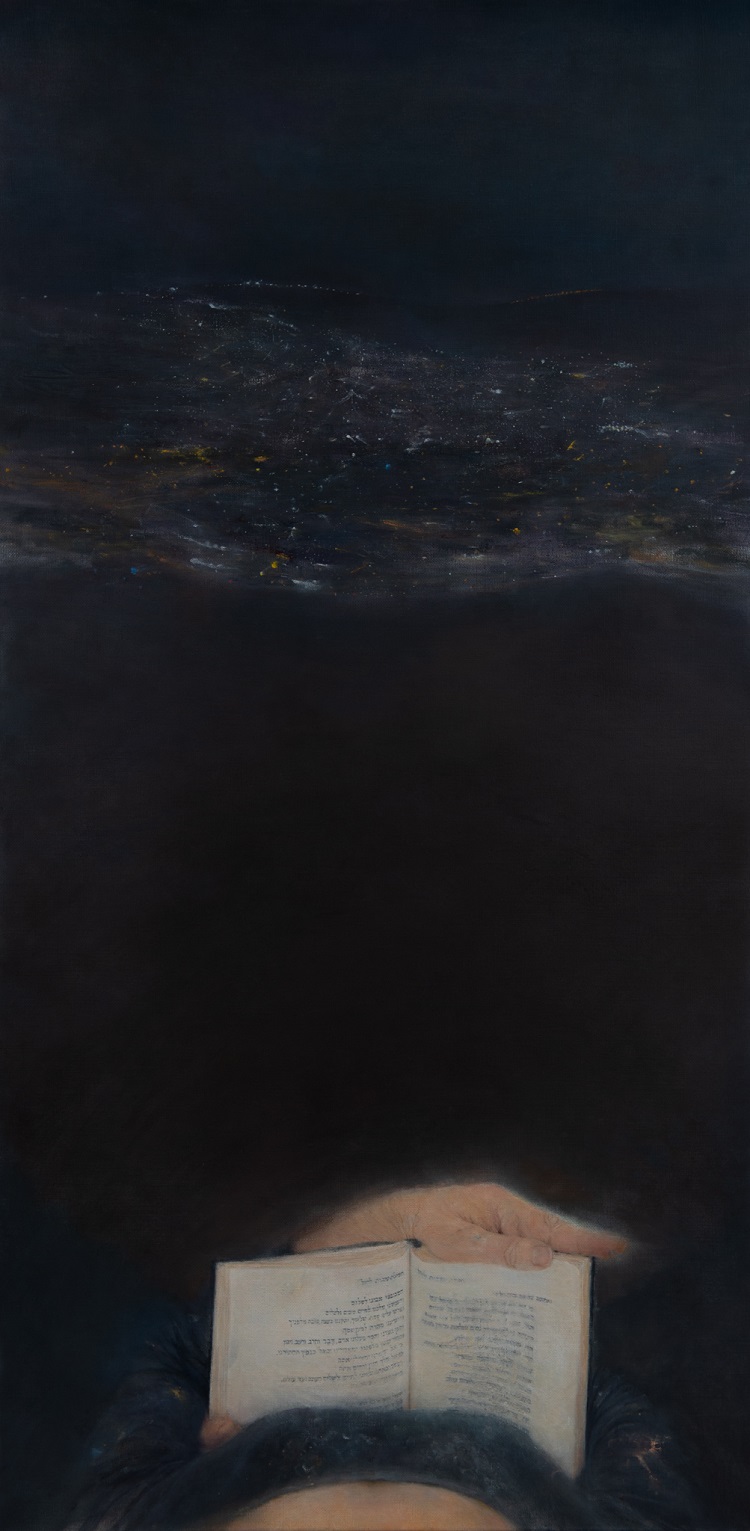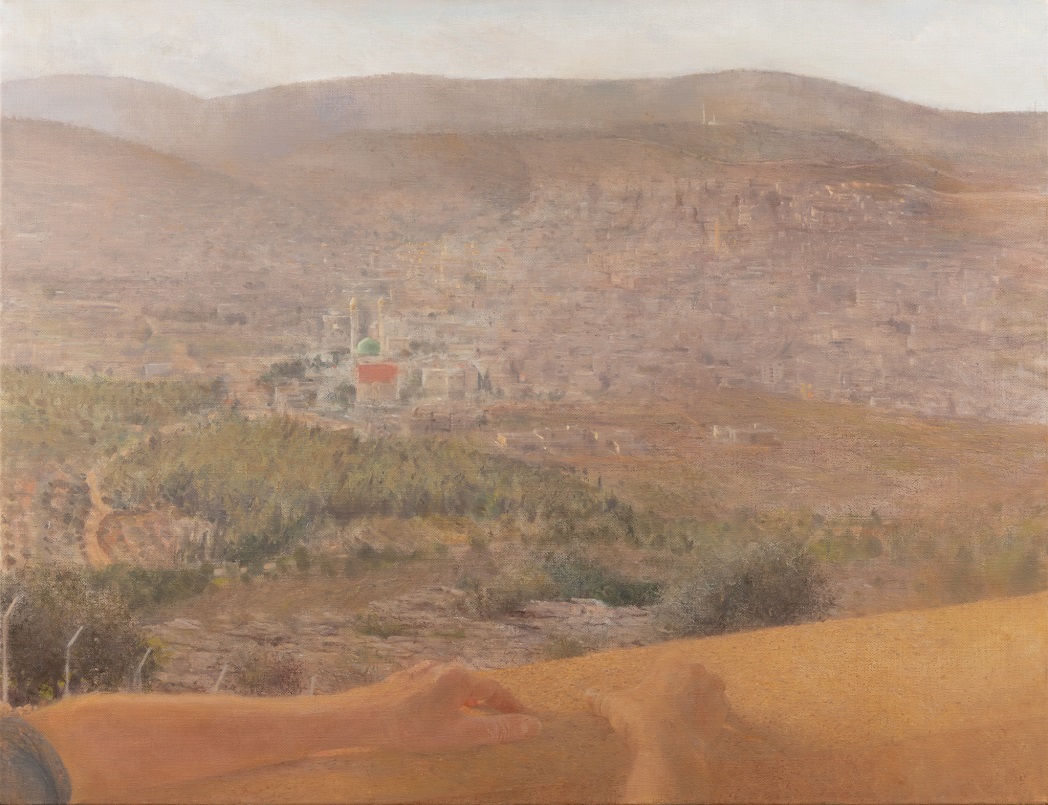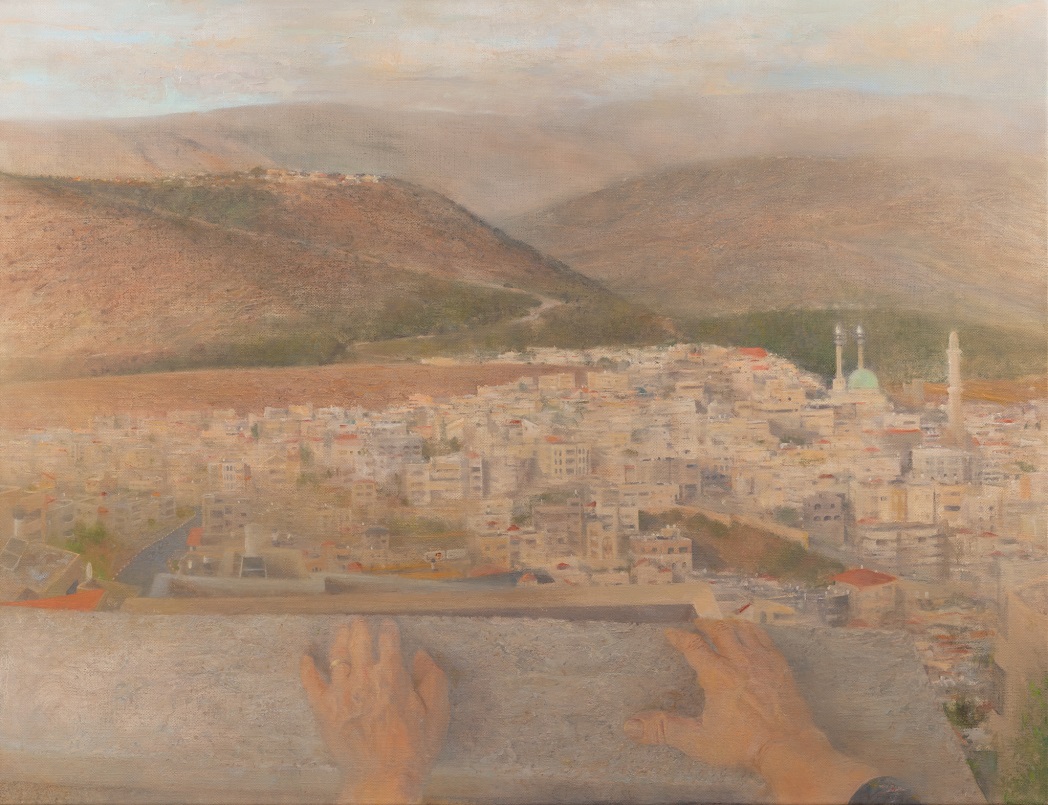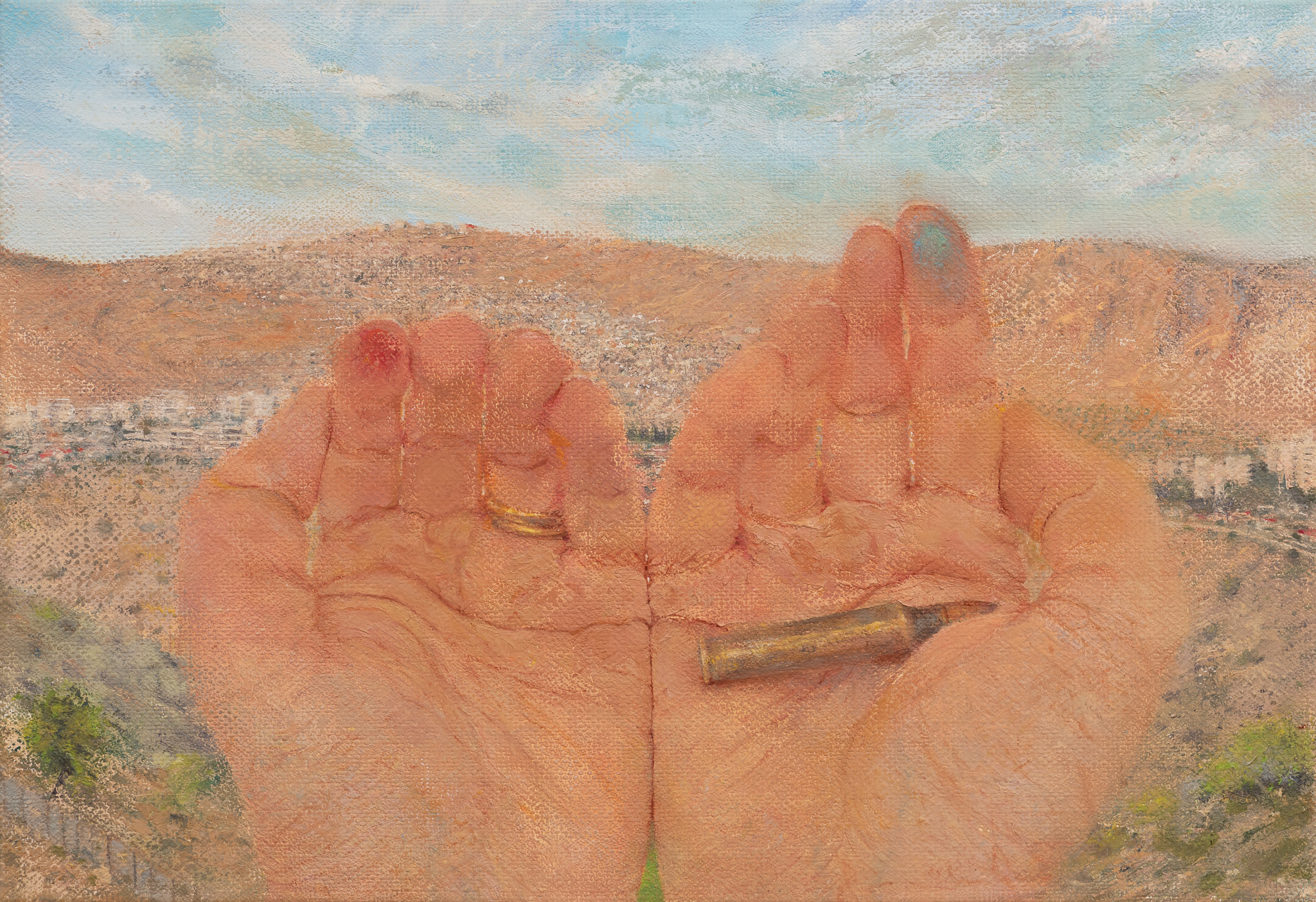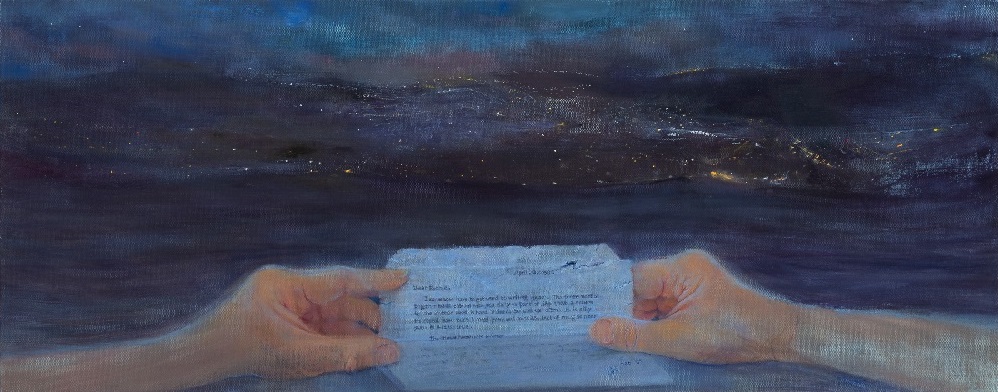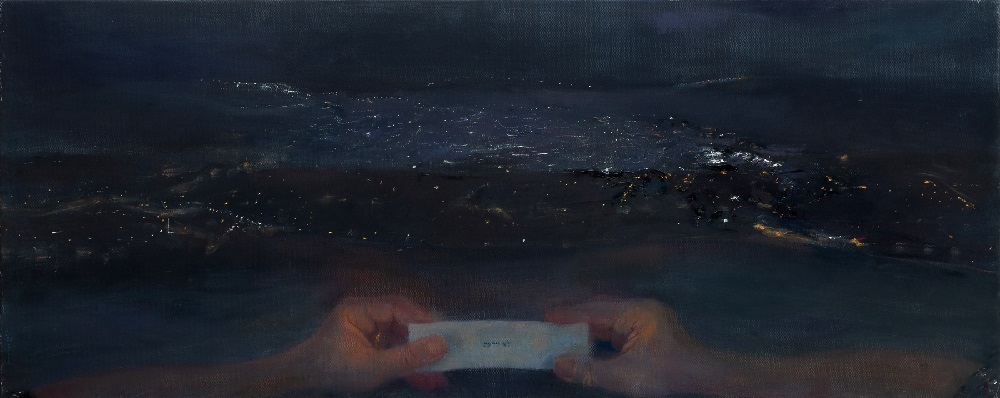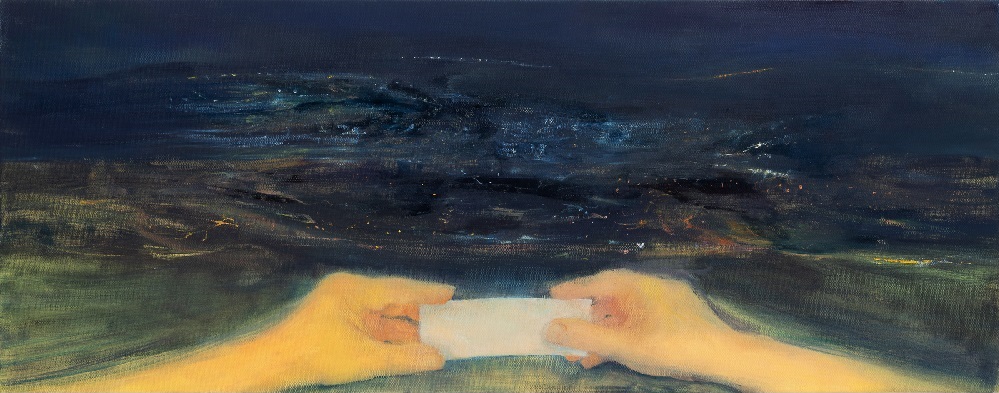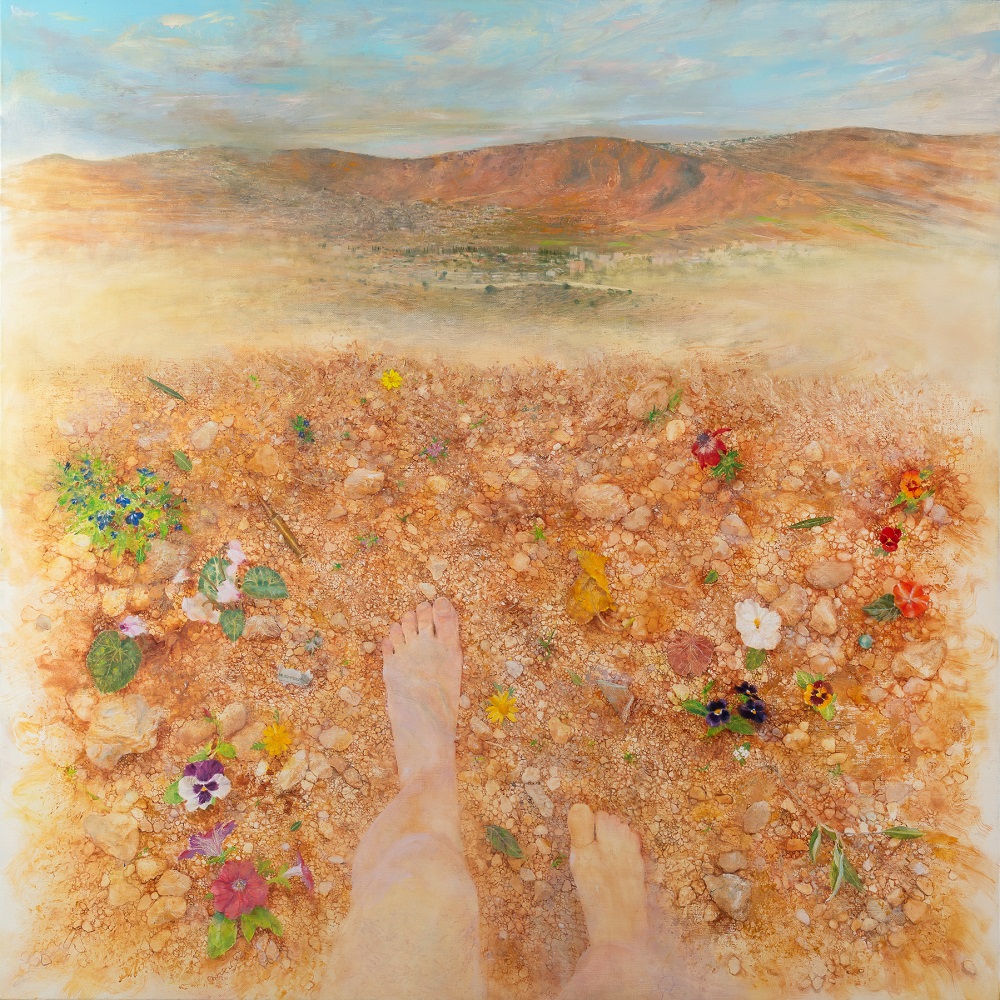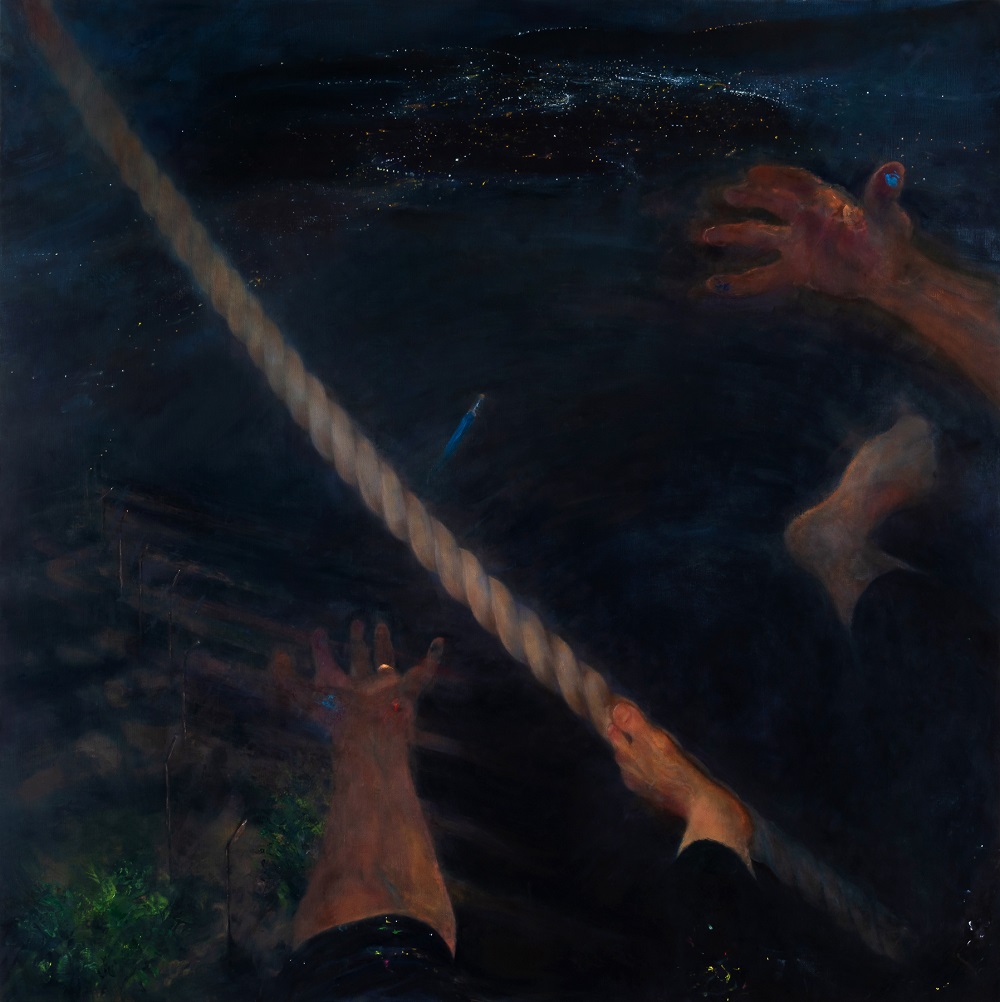Land of Painting
The series Land of Painting connects body and landscape in different ways. These are not generic bodies and landscapes, but rather the body of the painter and the landscape viewed from her studio. Years of working on the landscape (here and here, for example) form the foundation for this series, which brings the artist and the viewer into the composition.
In the work Land of Painting (which shares the series’ title) a figure walks on a slackline over the Lower Galilee landscape, keeping balance with a paintbrush in hand. The landscape viewed is perplexing: it combines direct observation with aerial views, while juxtaposing near and far, with a close-up of the soil as well as a view of the entire land of Israel. The imagery suggests that the act of painting itself, as well as life in this place, are like walking a tightrope – suffused with both love and trepidation.
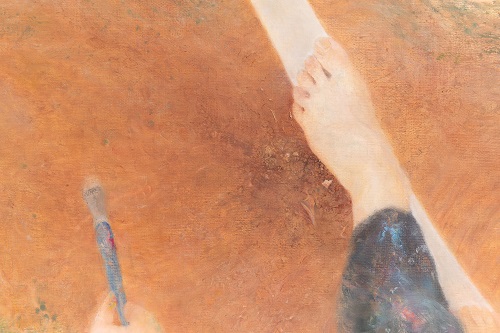
Land of Painting, details
In contrast with a traditional self-portrait in which the artist portrays her image apart from herself – her mirrored reflection – in most of the paintings in the series she is present inside her body and inside the painting; yet her image is incomplete, missing the face. Instead, attention is drawn to the feet. In Walking: Earth, Flesh, Paint, five images form a progression in movement and texture, ending (or beginning) with empty footprints in the soil.
Two Swing paintings show the landscape from the viewpoint of a figure swinging.
In Swing 1 sky and earth appear separately in two canvases showing the extremes of the swing’s motion, while Swing 2 presents a single, more holistic image of the world viewed from the swing. If the works viewed until now suggested an analogy between the act of painting (embodied by the reappearing paint-stained work clothes) and walking – on the ground or on a tightrope – or to swinging, Shomer Yisrael seems to liken painting to praying.
A pair of works entitled Painting Landscape refer directly to the action of the hand while painting, just a moment before the first mark is made, in daylight and at dusk.
Unlike the other works in the series, in the next two paintings the head of the painter appears, with her viewpoint within the composition. Yet the shadow on her back (and the hand on her shoulder) represent an awareness of a viewer who is obstinately present throughout the creative process. This viewer, critical or encouraging, is a seemingly external figure, but perhaps is no other than the painter herself, the fruit of her consciousness, and its shadow is in her image or that of her parents, looking on.
Tightrope returns to the image of the painter walking on a rope above the landscape, and intensifies the meeting of close-up and faraway views. Yet who is approaching her from the other end of the rope?
Hashkiveinu (Lay us down in peace) and Modim (We give thanks) bring us back to prayer, and to the connection – almost an embrace – between body, text and landscape, with nighttime and daytime views.
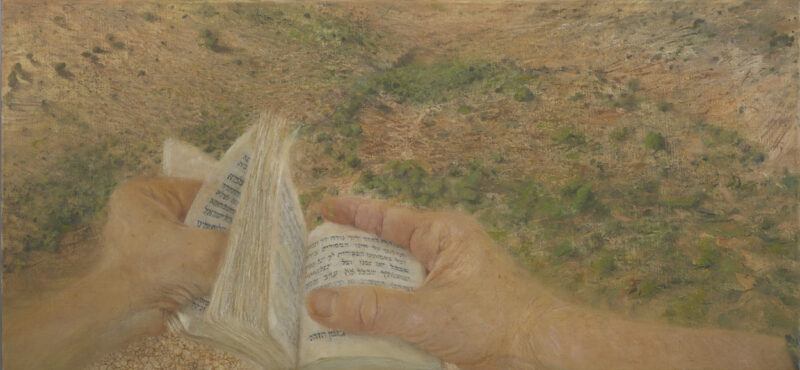
Modim, 2021, oil on canvas, 33×71 cm (13×28 in)
Here, rather than the hands holding a printed book in front of the landscape, it is a sketchbook:

Sketchbook with Landscape, 2021, oil on canvas, 42×42 cm (16.5×16.5 in)
This diptych brings together different viewpoints on the landscape: the view of Sachnin, painted from a rooftop in Eshchar, is juxtaposed with the view in the opposite direction, painted on a rooftop in Sachnin. More on the Rooftop Paintings here.
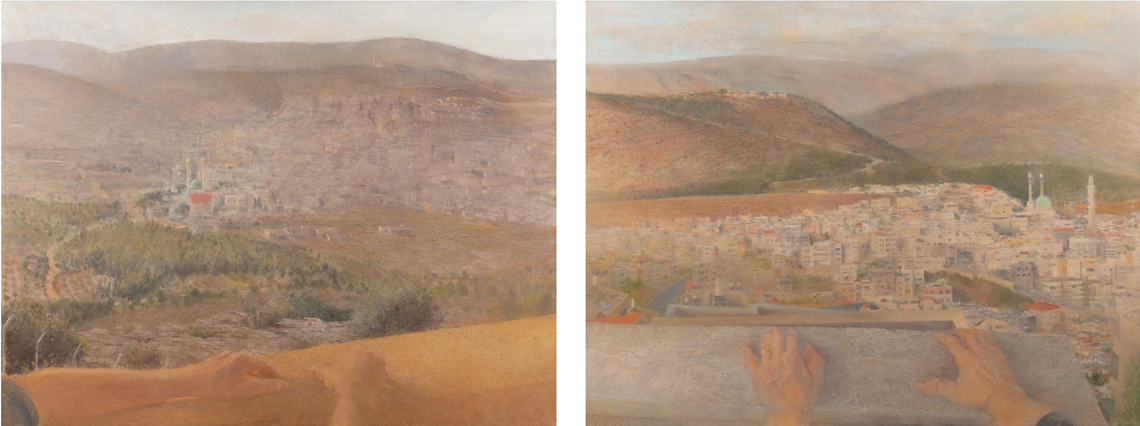
Rooftop Paintings: Eshchar-Sachnin (morning); Sachnin-Eshchar (afternoon), 2021, oil on canvas, 73×95 cm (28.5×37.5 in) each
Each one of the two views:
Later works in the series, from 2022-2024:
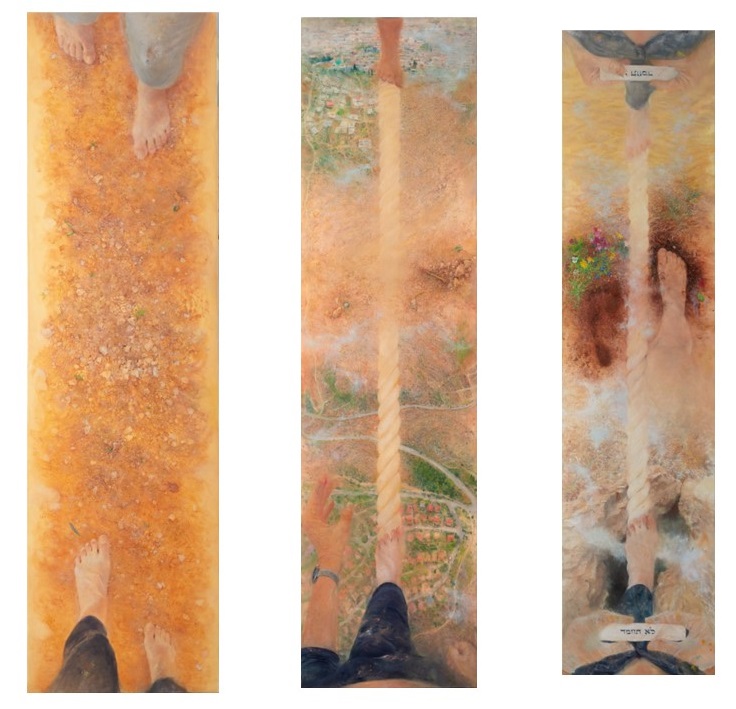
Rope or Path?, triptych: at right, Do/Not Covet, 2021, oil on canvas, 170×45 cm (67×15.5 in)*; at center, Eretz Hemda (A desirable land), 2023, oil on canvas, 175×45 cm (69×17.5 in); at left, Path, 2023, oil on canvas, 180×50 cm (71×19.5 in)
These three paintings from 2023 each have hands holding a letter or notes.
Work on these two square canvases, begun in the spring of 2023, became very important to me in the difficult months from the second half of October 2023 through the winter of 2024.
Photography: Maya Lifshitz, Dror Miler and Yigal Pardo
* The painting Do/Not Covet was created as part of the project/exhibition “Commandments and Commitments,” initiated and curated by Idit Levavi Gabbai, and exhibited in 2022 at the Kupferman Collection House, Kibbutz Lohamei Hagetaot.
Land of Painting is on view in the Umm el-Fahem Museum of Art, from November 16, 2024 through April 1, 2025.
A selection from the series was exhibited in the solo show The Acrobat, in Tel Aviv in 2022, in the group show Derech Eretz in Yavne and Hoshaya in 2023, and in the group show Field of Vision at Kupferman House, Kibbutz Lohamei Hagetaot, in 2020.
